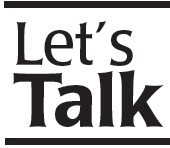The Human Development Center (HDC) with support from Cook County Public Health and Human Services is offering Parent Child Interaction Therapy (PCIT) in Cook County. Cecilia Bloomquist, MSW, LGSW was able to take advantage of PCIT training and consultation through funding from the Department of Human Services (DHS).
PCIT is one of the most researched interventions for young children. It was selected by DHS as one of the evidence-based practice models that holds lots of promise for young children 2½ – 7 whose parents who are struggling with severe disruptive behavior. Children referred to PCIT are often struggling in daycare and school settings and are very defiant, oppositional and are having lots of tantrums. The treatment begins with a diagnostic assessment to determine whether PCIT is appropriate. Once it is determined a child and their parents (or caregivers) meet the criteria established for treatment, therapy begins.
There are 2 phases of treatment. The first is called “Child Directed Intervention” and it is during this phase that parents are taught specific skills to change what often have become very stressful and negative interaction patterns with their very distressed child.
The therapist first teaches the skills to the parent and then provides “live coaching” to the parent who is engaged in structured play sessions with their child. The parent wears an earpiece and listens to the therapist “send in plays” during the parent’s time with the child. This live coaching model is a unique form of therapy in that the child perceives the change coming directly from their parent and not from the therapist. The goal of this first phase of PCIT is to strengthen the positive connection between the child and parent and to allow the child and parent to re-experience the feeling of their warmth and love for each other.
Phase 2 of treatment shifts from child directed play to “Parent Directed Intervention.” During this phase parents are first taught and then coached with the earpiece to effectively get their young children to listen and mind. Children learn that complying is a much better choice than the noncompliance, arguing, and fighting that the negative interaction promotes.
PCIT is not for everyone and that is why an assessment is completed to determine whether or not it is the best or appropriate treatment. The treatment process is between 12-20 weeks. It mostly depends on the parent’s ability to learn the skills and commit to the practice at home. Like any attempt to change bad habits it takes practice, but once learned can alter frustrating patterns and provide long lasting benefits.
Each month a mental health therapist will discuss an area of mental health. This week’s contributor is M. Casey Ladd, MSW, LICSW, LMFT, director of child/family services with the Human Development Center.



Loading Comments